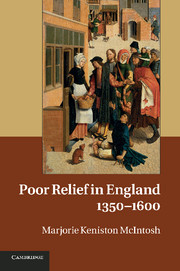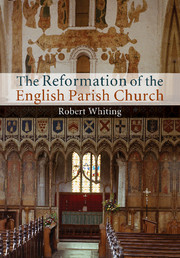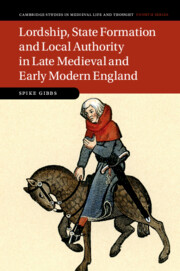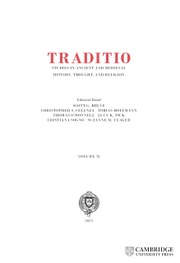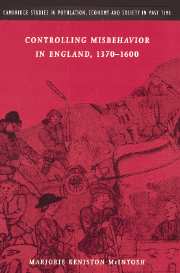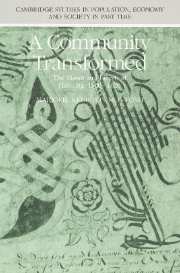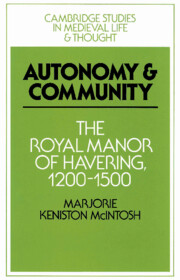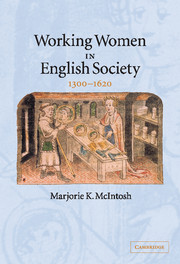Poor Relief in England, 1350–1600
Between the mid fourteenth century and the Poor Laws of 1598 and 1601, English poor relief moved toward a more coherent and comprehensive network of support. Marjorie McIntosh's study, the first to trace developments across that time span, focuses on three types of assistance: licensed begging and the solicitation of charitable alms; hospitals and almshouses for the bedridden and elderly; and the aid given by parishes. It explores changing conceptions of poverty and charity and altered roles for the church, state and private organizations in the provision of relief. The study highlights fraud and negligence, mounting concern with proper supervision and accounting, cooperation between national and lower levels of government, and the creativity of local people in responding to poverty. This groundbreaking work challenges existing accounts of the Poor Laws, showing that they addressed problems with forms of aid already in use rather than creating a new system of relief.
- Presents the first overview of poor relief in its early formative period
- Covers both the medieval and early modern periods, offering a coherent history of poor relief from its origins in the mid-fourteenth century to the sixteenth century
- Accompanied by online appendices which include supplementary data on the specifics of poor relief provision and explain the methodology underlying the raw data presented in the book
Reviews & endorsements
“In Poor Relief in England 1350-1600, acclaimed historian Marjorie McIntosh offers a magisterial account of the early evolvement of practices that were to become the pillars of the ‘mixed economy’ of caring for the poor over the course of the entire early modern era. Superbly researched and cogently written, the book is an essential reading for students and scholars of society and politics in late medieval and early modern times.” -Ilana Krausman Ben-Amos, author of The Culture of Giving: Informal Support and Gift-Exchange in Early Modern England
“On the basis of an extraordinary amount of painstaking research on an enormously wide range of manuscript material, both in the national archives and in local record repositories, Marjorie McIntosh's fine new book skilfully re-unites the mediaeval and early modern historiographies of poor relief; and convincingly argues that the unjustly neglected and often misunderstood statutes of 1552, 1563 and 1572 must take pride of place in our understanding of the chronology and meaning of the nascent system of welfare in early modern England.” -Steve Hindle, Director of Research, The Huntington Library
"Anyone studying the social or political history of early modern England will have to read this examination of the early stages of English welfard. Essential." -Choice
"...thoroughly researched and nuanced monograph..." -Ian W. Archer, Renaissance Quarterly
"As she does so often, Marjorie McIntosh’s work helpfully crosses the medieval–early modern divide, allowing her to consider the developments of the late medieval and early Reformation period as a single entity." -P. H. Cullum, The Journal of British Studies
Product details
February 2012Hardback
9781107015081
368 pages
231 × 155 × 23 mm
0.66kg
3 b/w illus. 3 tables
Available
Table of Contents
- 1. Introduction
- Part I. Late Medieval and Early Tudor Patterns:
- 2. Seeking alms
- 3. Late medieval hospitals and almshouses
- 4. Aid given through and by the parish
- Part II. Profound Change during the Early Reformation Period:
- 5. New ideas and new policies, c.1530–53
- Part III. Intensified Problems and Altered Approaches in the Later Sixteenth Century:
- 6. The burgeoning of begging, collection, and fraud
- 7. The changing nature of almshouses and hospitals
- 8. Support for the parish poor
- Part IV. Responding to the Problems:
- 9. The Poor Laws of 1598 and 1601
- 10. Conclusion
- Appendices.

